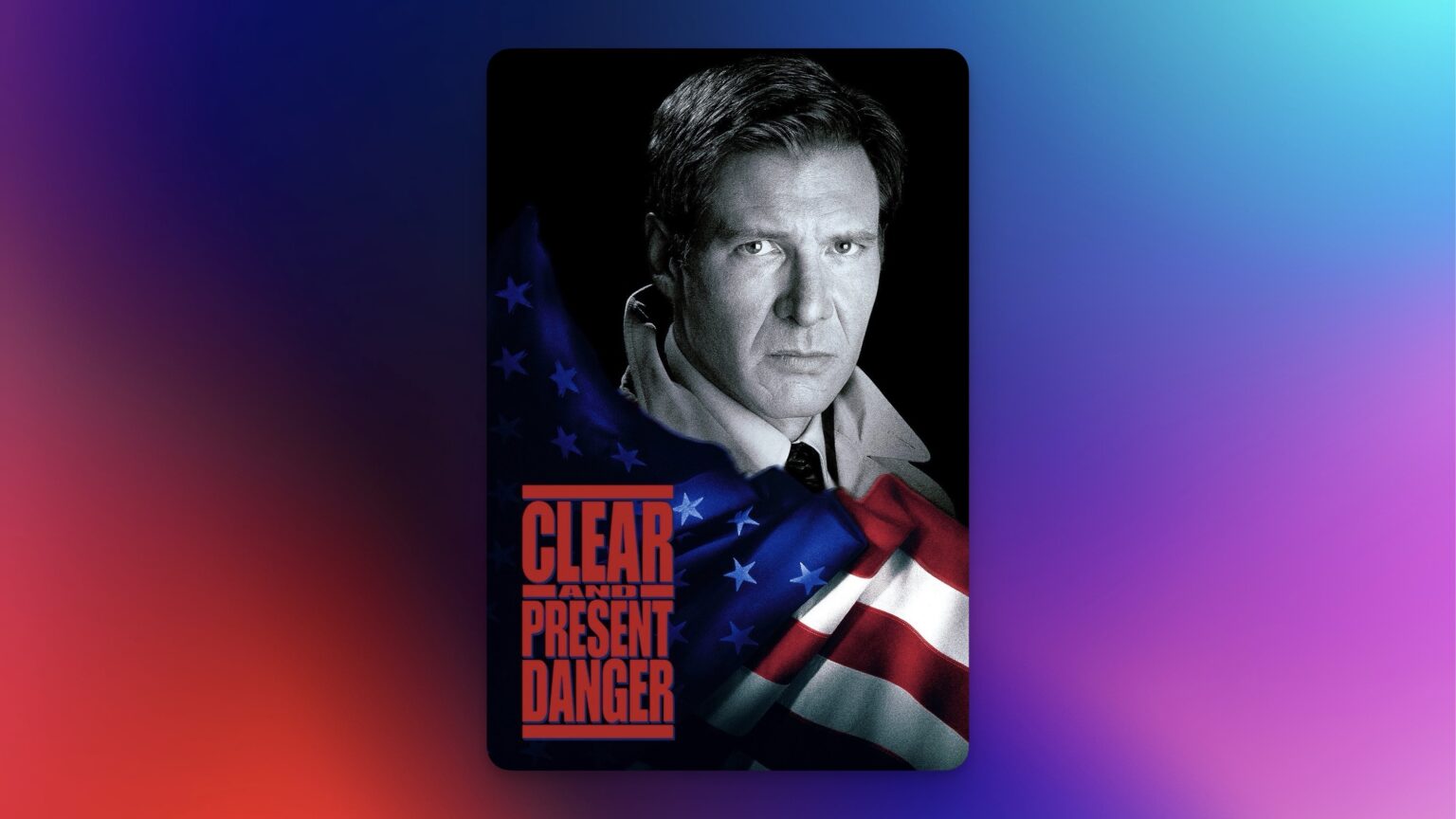We tend to think of heroes as forged in fire, individuals molded by extraordinary circumstances into something… more. But what if the truly compelling figures, the ones who resonate most deeply, are those who stumble into heroism? Those who navigate the world with a mix of competence and clumsiness, only to find themselves at the center of events far larger than themselves? You know, regular Joes and Janes like you and me? Believe it or not, this is what Phillip Noyce’s 1994 thriller, Clear and Present Danger gets right… maybe even more than the two adaptations that came before it.
Harrison Ford’s Jack Ryan is even less the polished action hero of Patriot Games. He’s a policy wonk, an analyst thrust into the chaotic realm of covert operations in the scary drug war. He’s a reply-all guy. He’s smart, capable, but there’s a palpable sense of improvisation, a constant feeling that he’s figuring things out as he goes along. This makes him more relatable, more human this time around.
For example, the setting: Washington D.C. Not the glamorous, romanticized D.C. of fictionalized political dramas, but a D.C. of fictionalized bureaucratic infighting, hushed hallway conversations, and the constant hum of power. Ryan is more at home here. He understands the language of policy papers and interagency rivalries. He’s comfortable in the world of ideas, not explosions. This familiarity with the mundane is a blind spot. He doesn’t see the cracks in the system, the subtle deviations from protocol that hint at something deeper, something rotten.
The film’s central conflict, a clandestine war against Colombian drug cartels, unfolds not in a flurry of gunfire and car chases but in a series of increasingly uncomfortable meetings, tense phone calls, and furtive glances exchanged across crowded rooms. Sure, there is real danger in the cartel itself, but even more so in the insidious erosion of trust, the blurring of lines between right and wrong within the corridors of power.
James Earl Jones, the ailing Admiral Greer, serves as a poignant counterpoint to Ryan’s accidental heroism. Greer represents the old guard, the embodiment of experience and wisdom wrapped in IVs and terrycloth. His few scenes in the film bring a quiet dignity, a passing of the torch from one generation to the next, even when he was begging Ryan for some more current porn.
The supporting cast, including Willem Dafoe as the beady-eyed John Clark, further enhances the film’s nuanced portrayal of the intelligence community. I’m writing that sarcastically, of course. He’s subtle, you know, for him, but there’s always room for cartoonish villains and two-dimensional sidekicks. So, sarcastic, yeah, but from a place of love.
Clear and Present Danger is a two-eye-winking satire about abuses of power and unchecked nationalism made all the more hilarious by the disconnect between the profoundly unsexy Ryan and the whirlwind of sexiness he gets caught up in. High-stakes covert ops, smokin’ hot Colombian mercenaries, even some low-key flirting. All while poor everyman Ryan just wants to be back at Langley analyzing columns of data.
Yet that’s exactly what makes Clear and Present Danger so great – it’s self-aware almost to a fault about its own genre trappings. Even as it spoofs well-worn espionage cliches, there’s an underlying warmth and sincerity to the core message about the importance of civic duty and accountable leadership. It plays the hits like it’s on the big stage at Red Rocks.
It reminds us that sometimes, sure, it’s amusing watching a fish-out-of-water like Jack Ryan get tangled up in high-stakes skullduggery. But at the end of the day, we all have an obligation to be accidental patriots of conscience when our leaders go rogue. And we can’t help but crack up imagining schlubby ol’ Jack somehow being the unlikely guy to save America from itself. This Jack, he’s my Jack, and I’m here for it.

